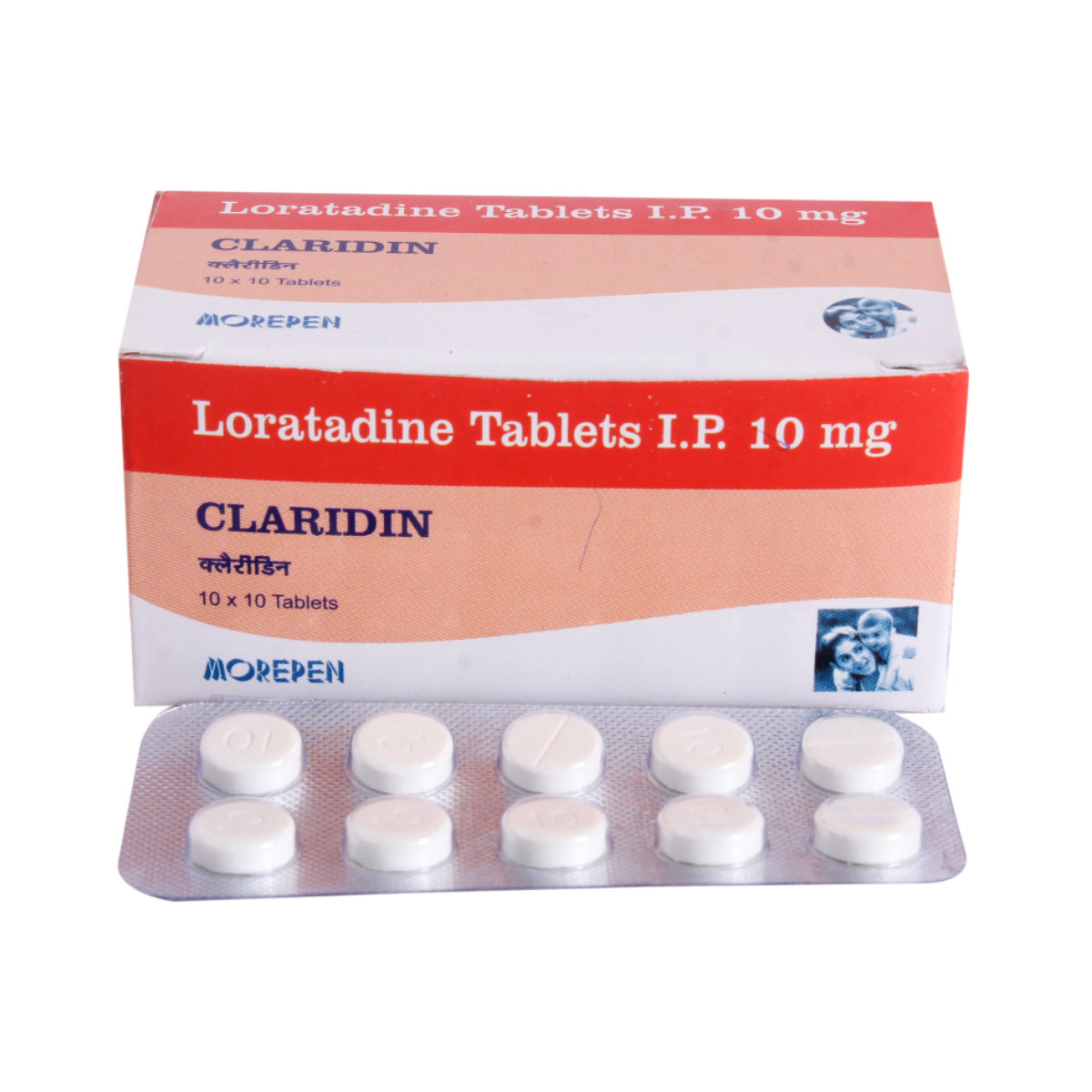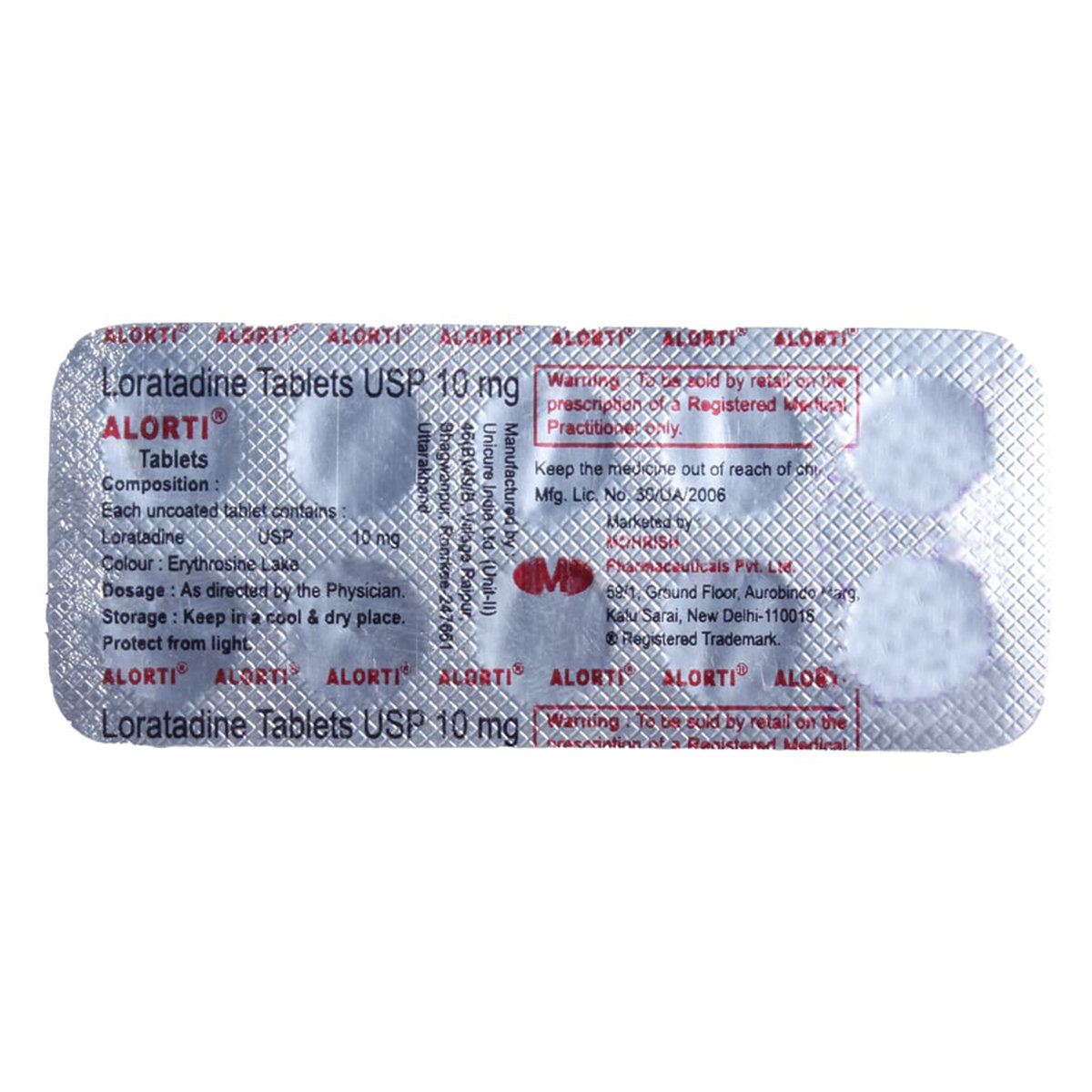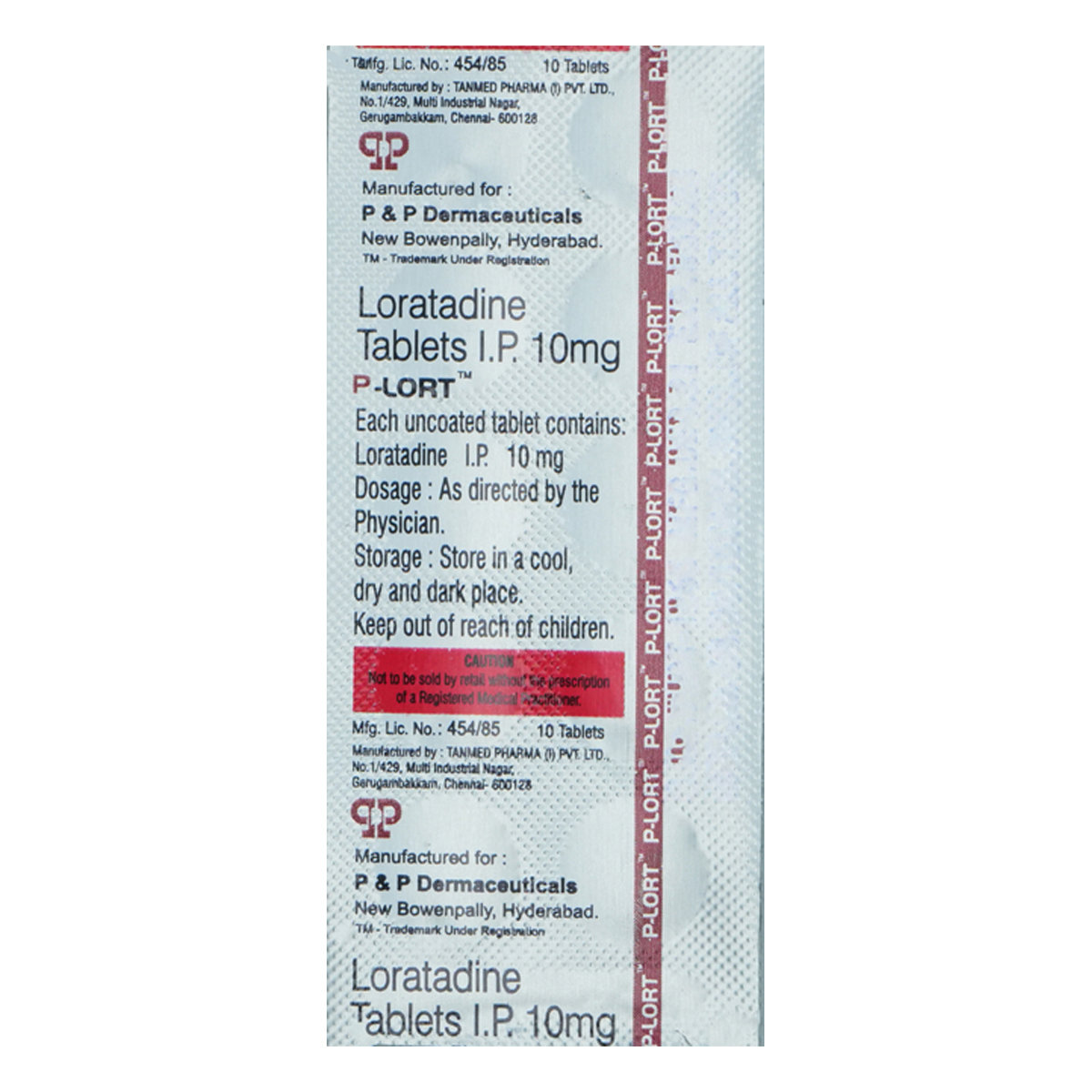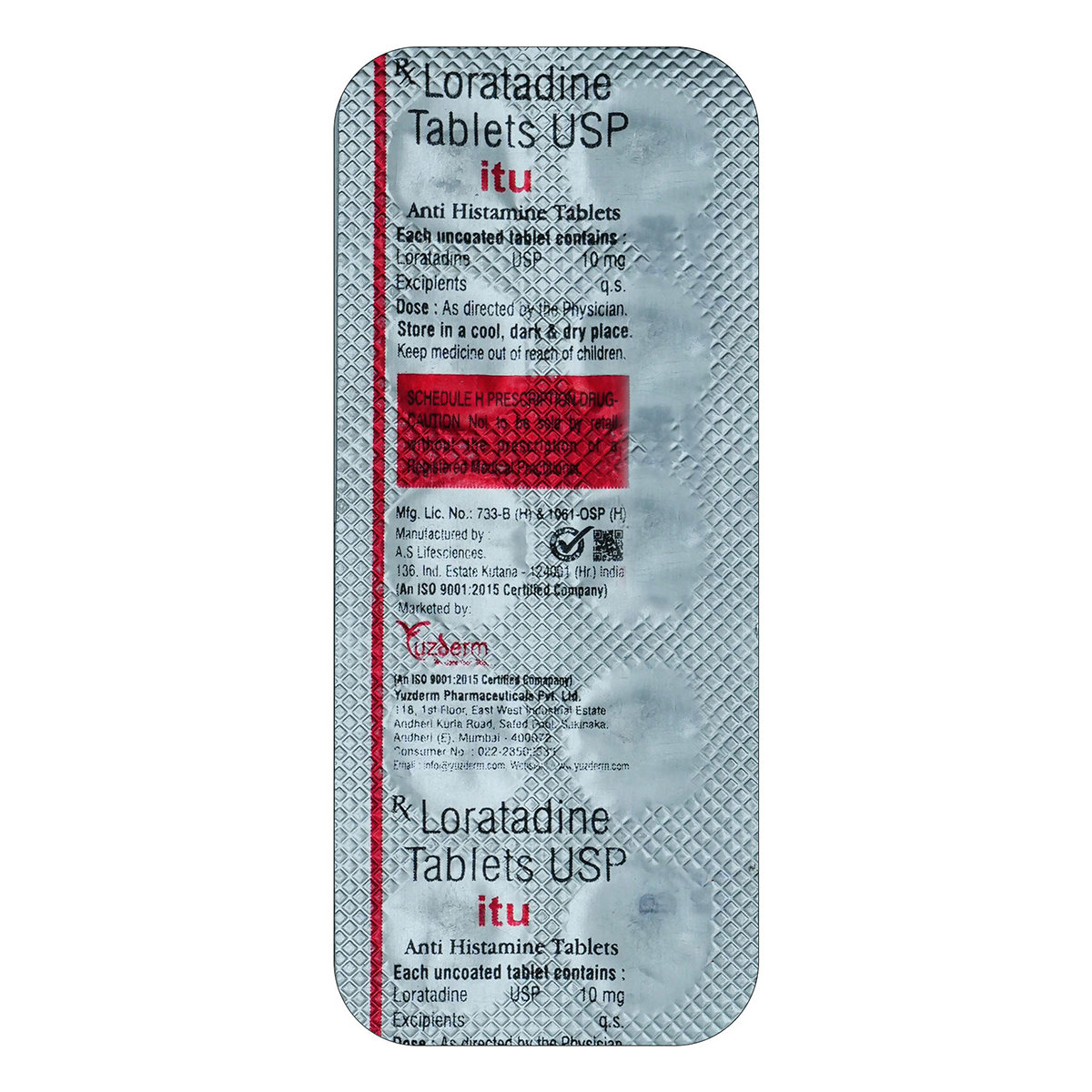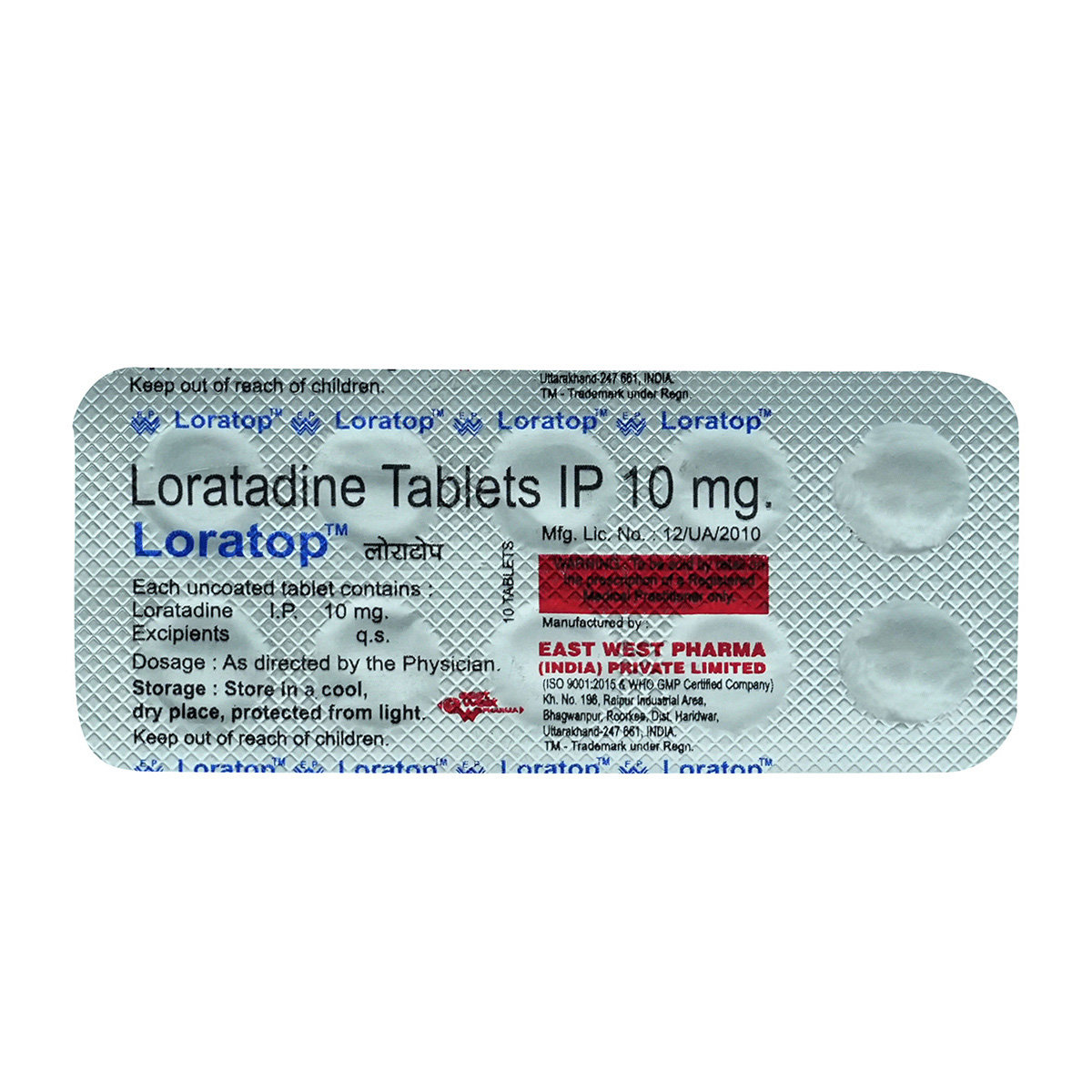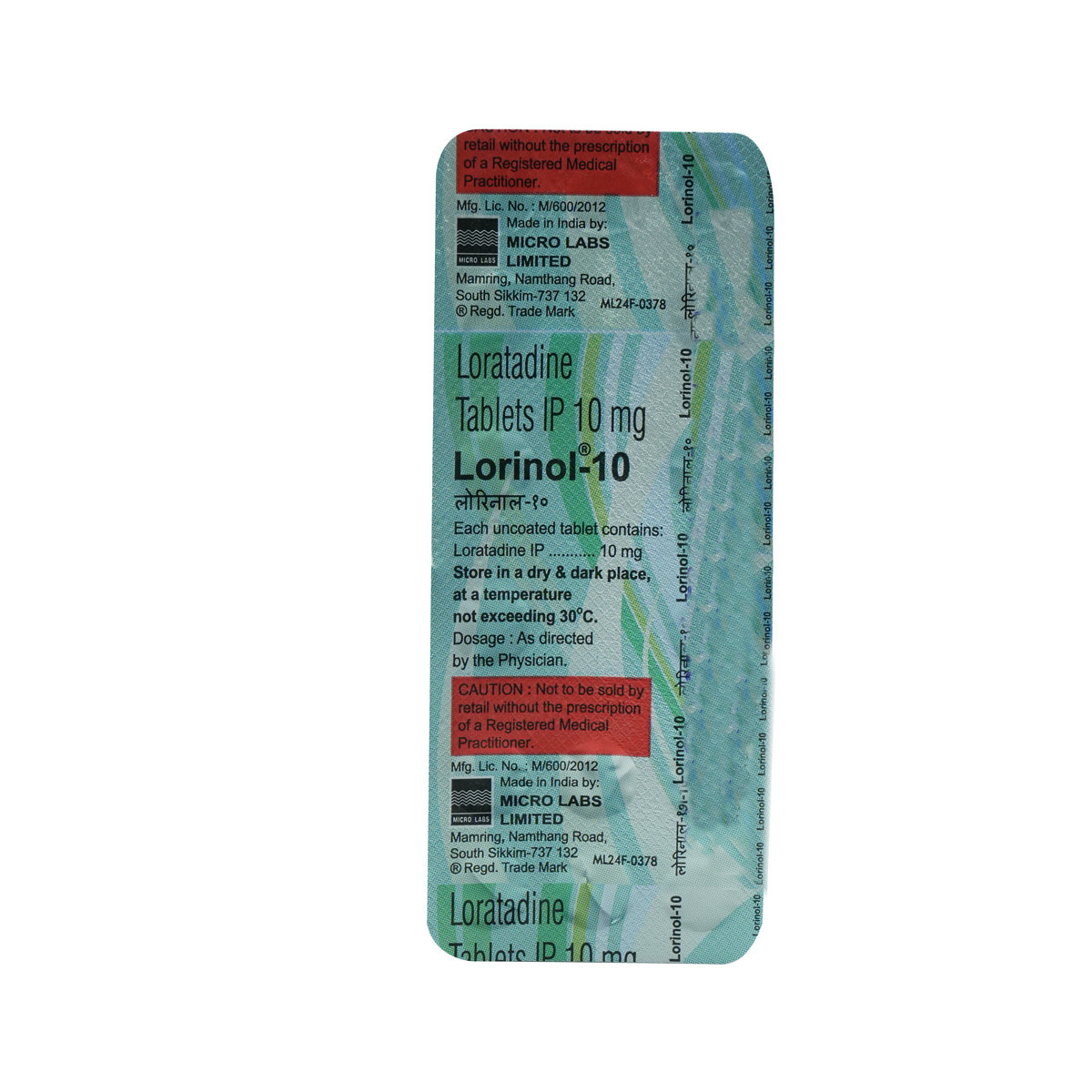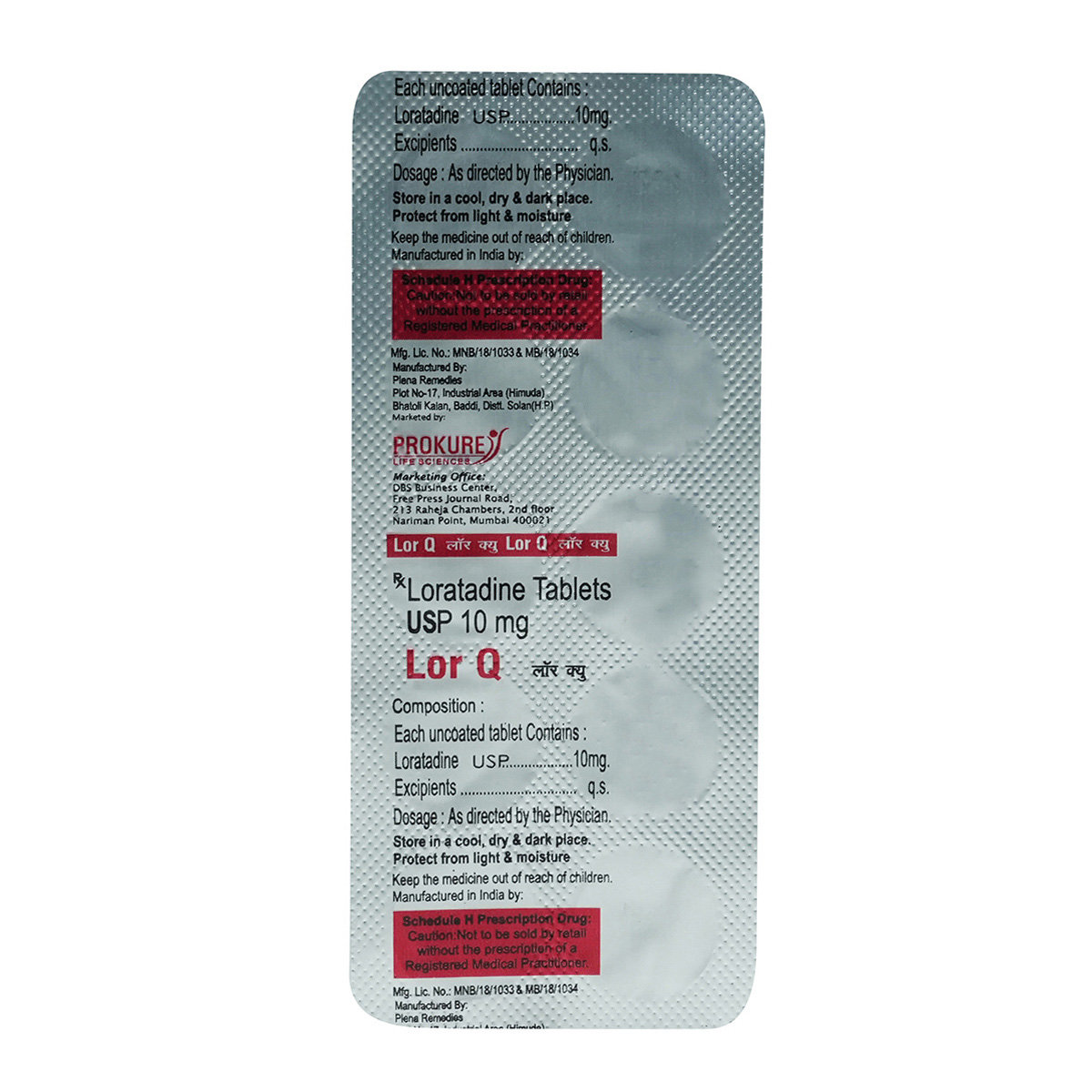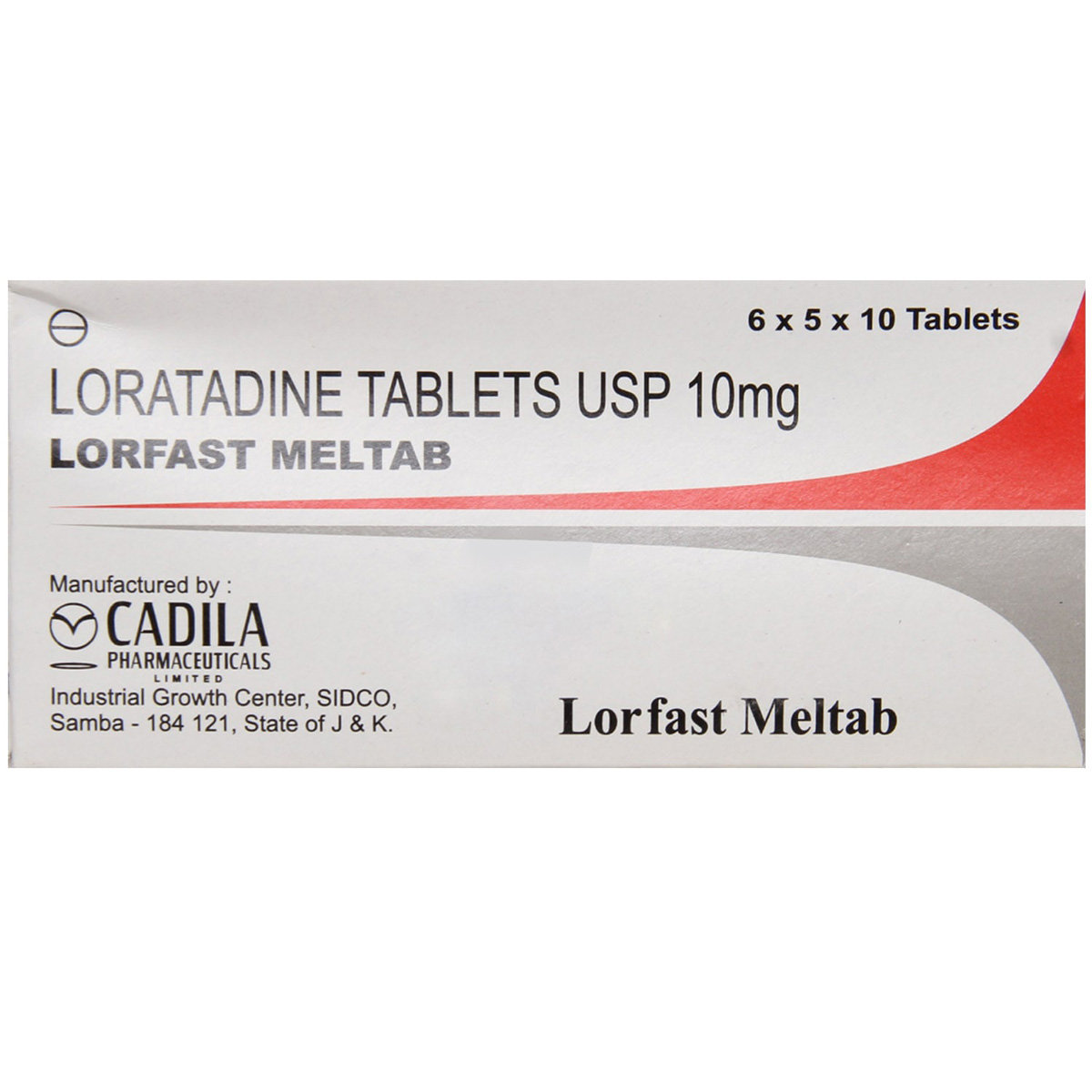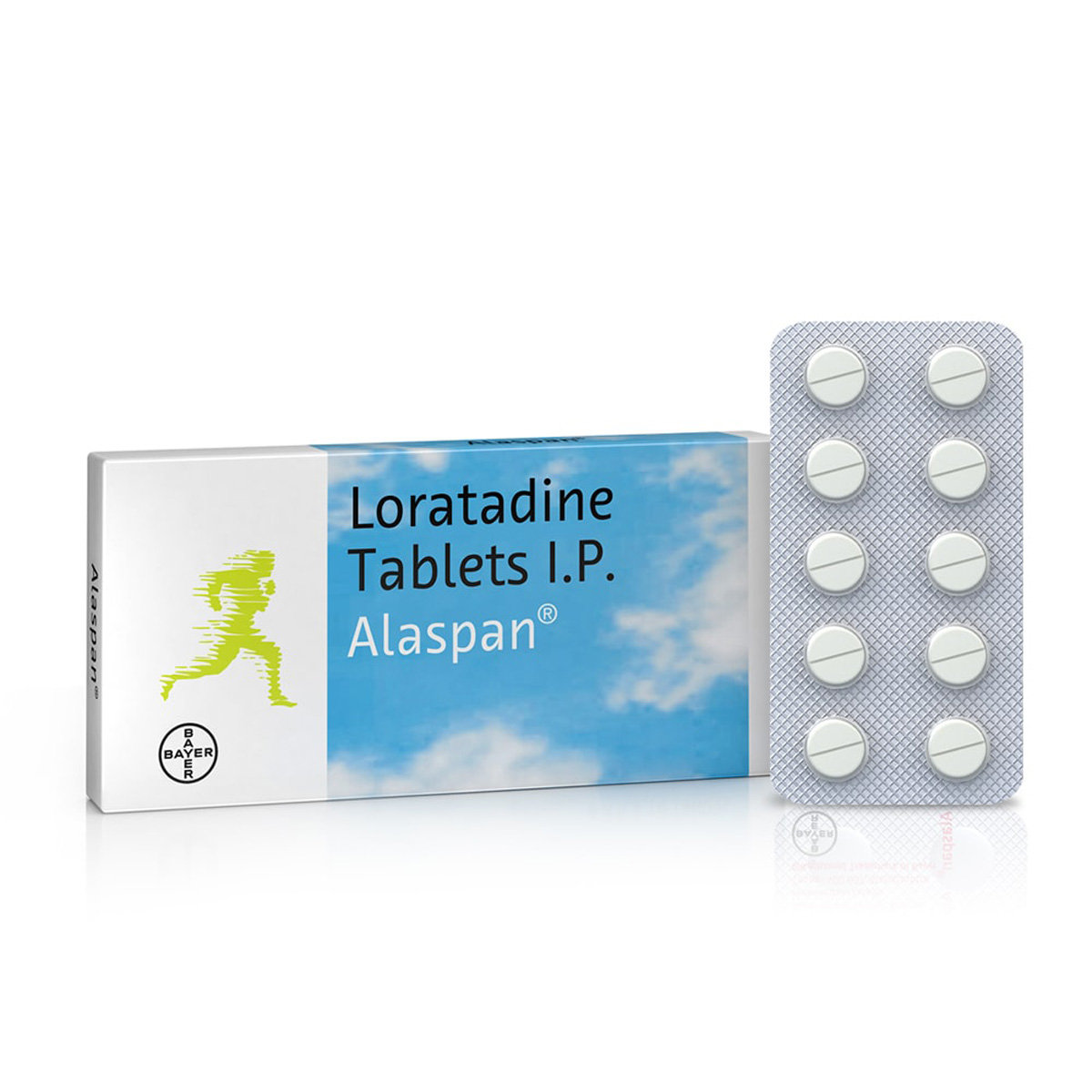Aktilor Tablet 10's
MRP ₹65.5
(Inclusive of all Taxes)
₹9.8 Cashback (15%)
Provide Delivery Location
Online payment accepted
 Prescription drug
Prescription drugWhats That
Composition :
Manufacturer/Marketer :
Consume Type :
Expires on or after :
Return Policy :
About Aktilor Tablet
Aktilor Tablet belongs to the class of antihistamine medication primarily used to relieve the symptoms of allergies such as hay fever, conjunctivitis (red, itchy eyes), eczema, hives (urticaria), reactions to insect bites and stings, and some food allergies. An allergy is an immune system response to foreign elements typically not harmful to your body. These foreign elements are known as 'allergens.' Allergic condition varies from person to person.
Aktilor Tablet contains loratadine, a non-drowsy antihistamine. Aktilor Tablet is responsible for reducing the effects of the natural chemical 'histamine' present in the body. This chemical is responsible for producing symptoms, including watery eyes, runny nose, and other allergic symptoms.
Use Aktilor Tablet as prescribed by the doctor. Aktilor Tablet , like all medications, can have side effects. However, not everyone experiences them. The most prevalent adverse effect is drowsiness or sleepiness. Headaches, fatigue, and nervousness may occur in youngsters. However, these side effects may not last long and go on for some time.
Do not use Aktilor Tablet without a doctor's advice if you have a skin reaction or irritation to any medicine. Consult your doctor before using Aktilor Tablet if you are pregnant or breastfeeding. Do not use Aktilor Tablet in more than prescribed doses or longer duration as it may cause adverse effects. Before taking Aktilor Tablet , inform your doctor about your medical history and other medications you are currently taking to rule out any potential adverse effects or interactions. Avoiding alcohol is recommended to rule out any possibility of side effects like dizziness. Aktilor Tablet is not recommended in children below two years of age.
Uses of Aktilor Tablet
Directions for Use
Key Benefits
Aktilor Tablet is a non-sedating antihistamine. It is less prone to cause sleepiness than other antihistamines. By suppressing histamine action, Aktilor Tablet provides immediate relief from allergic reactions and symptoms. Histamine is a chemical that triggers immunological responses and inflammation in the body. Aktilor Tablet is commonly used to treat hay fever (pollen or dust allergy), conjunctivitis (red, itchy eyes), eczema (dermatitis), hives (red, raised patches or spots), insect bite and sting reactions, and several food allergies.
Storage
- Hydrate your body: Drink enough water to prevent dehydration and headaches.
- Calm Your Mind: Deep breathing and meditation can help you relax and relieve stress.
- Rest and Recharge: Sleep for 7-8 hours to reduce headache triggers.
- Take rest: lie down in a quiet, dark environment.
- Cold or warm compresses can help reduce tension.
- Stay Upright: Maintain good posture to keep symptoms from getting worse.
- To treat headaches naturally, try acupuncture or massage therapy.
- Over-the-counter pain relievers include acetaminophen and ibuprofen.
- Prescription Assistance: Speak with your doctor about more substantial drug alternatives.
- Severe Headaches: Seek emergency medical assistance for sudden, severe headaches.
- Frequent Headaches: If you get reoccurring headaches, consult your doctor.
- Headaches with Symptoms: Seek medical attention if your headaches include fever, disorientation, or weakness.
- Inform your doctor immediately if you experience a fever after starting a new medication.
- Your doctor may adjust your medication regimen or dosage as needed to minimize fever symptoms.
- Monitor your body temperature to monitor fever progression.
- Drink plenty of fluids, such as water or electrolyte-rich beverages, to help your body regulate temperature.
- Get plenty of rest and engage in relaxation techniques, such as deep breathing or meditation, to help manage fever symptoms.
- Under the guidance of your doctor, consider taking medication, such as acetaminophen or ibuprofen, to help reduce fever.
- If your fever is extremely high (over 103°F), or if you experience severe symptoms such as confusion, seizures, or difficulty breathing, seek immediate medical attention.
- Manage stress by practising deep breathing, yoga or meditation.
- Get enough sleep. Maintain a regular sleep cycle.
- Exercise regularly. Try physical activities like walking, running, or dancing.
- Limit stimulants like tea, coffee and alcohol.
- Identify triggers and try managing them.
- Take a break by scheduling time for yourself.
- Try creative activities like writing, dancing or painting as it helps release tension.
- Inform Your Doctor: Notify your doctor immediately about your diarrhoea symptoms. This allows them to adjust your medication or provide guidance on managing side effects.
- Stay Hydrated: Drink plenty of fluids to replace lost water and electrolytes. Choose water, clear broth, and electrolyte-rich drinks. Avoid carbonated or caffeinated beverages to effectively rehydrate your body.
- Follow a Bland Diet: Eat easy-to-digest foods to help firm up your stool and settle your stomach. Try incorporating bananas, rice, applesauce, toast, plain crackers, and boiled vegetables into your diet.
- Avoid Trigger Foods: Steer clear of foods that can worsen diarrhoea, such as spicy, fatty, or greasy foods, high-fibre foods, and dairy products (especially if you're lactose intolerant).
- Practice Good Hygiene: Maintain good hygiene to prevent the spread of infection. To stay healthy, wash your hands frequently, clean and disinfect surfaces regularly, and avoid exchanging personal belongings with others.
- Take Anti-Diarrheal Medications: If your doctor advises, anti-diarrheal medications such as loperamide might help manage diarrhoea symptoms. Always follow your doctor's directions.
- Keep track of your diarrhoea symptoms. If they don't get better or worse or are accompanied by severe stomach pain, blood, or dehydration signs (like extreme thirst or dark urine), seek medical help.
- Inform your doctor about the symptoms you're experiencing due to medication.
- Your doctor may adjust your treatment plan, which could include changing your medication, adding new medications, or offering advice on managing your symptoms.
- Practice good hygiene, including frequent handwashing, avoiding close contact with others, and avoiding sharing utensils or personal items.
- Stay hydrated by drinking plenty of fluids to help loosen and clear mucus from your nose, throat, and airways.
- Get plenty of rest and engage in stress-reducing activities to help your body recover. If your symptoms don't subside or worsen, consult your doctor for further guidance.
- Tell your doctor about the cough symptoms you're experiencing, which may be triggered by your medication.
- Your doctor may adjust your treatment plan by changing your medication, adding new medications, or providing guidance on managing your cough symptoms.
- Practice good hygiene, including frequent handwashing, avoiding close contact with others, and avoiding sharing utensils or personal items.
- Stay hydrated by drinking plenty of fluids, such as water, tea, or soup, to help thin out mucus and soothe your throat.
- Get plenty of rest and engage in stress-reducing activities to help your body recover. If your cough persists or worsens, consult your doctor for further guidance.
- Inform your doctor about dizziness symptoms. They may adjust your medication regimen or prescribe additional medications to manage symptoms.
- Follow your doctor's instructions for taking medication, and take it at the same time every day to minimize dizziness.
- When standing up, do so slowly and carefully to avoid sudden dizziness.
- Avoid making sudden movements, such as turning or bending quickly, which can exacerbate dizziness.
- Drink plenty of water throughout the day to stay hydrated and help alleviate dizziness symptoms.
- If you're feeling dizzy, sit or lie down and rest until the dizziness passes.
- Track when dizziness occurs and any factors that may trigger it, and share this information with your doctor to help manage symptoms.
Drug Warnings
Before your doctor prescribes Aktilor Tablet , tell them if you are sensitive to it or any other component present in this, as it may cause serious allergic reactions in the body. Never try to self-treat yourself with this drug without talking to your doctor, as it may cause serious side effects. If you are a patient with kidney disease, the liver disease, then tell about this to your doctor before they prescribe it to you. Elderly persons may be more sensitive to the serious reactions of this drug, especially light-headedness or confusion. Usually, the Aktilor Tablet does not cause drowsiness as this medicine does not go inside the brain. However, a person taking it is still not allowed to drive or do any work that needs clear attention.
Drug-Drug Interactions
Drug-Drug Interactions
Login/Sign Up
Co-administration of Aktilor Tablet with Isocarboxazid can increase the risk of CNS depression.
How to manage the interaction:
Taking Aktilor Tablet with Isocarboxazid together can possibly result in an interaction, but it can be taken if a doctor has advised it. Do not stop using any medications without talking to a doctor.
Co-administration of Ivacaftor and Aktilor Tablet can increase the levels of Aktilor Tablet.
How to manage the interaction:
Co-administration of Aktilor Tablet with Ivacaftor can possibly result in an interaction, but it can be taken if doctor has advised it. Do not stop using any medications without talking to a doctor.
Co-administration of Aktilor Tablet with Tranylcypromine may increase the risk or severity of CNS depression (decreased heart rate, decreased rate of breathing, loss of consciousness).
How to manage the interaction:
Although there is an interaction between Aktilor Tablet with tranylcypromine, but it can be taken if a doctor has advised it. However, if you experience any unusual symptoms contact your doctor immediately. Do not discontinue any medications without consulting a doctor.
Drug-Food Interactions
Drug-Food Interactions
Login/Sign Up
Diet & Lifestyle Advise
- Try to include peppers, berries, parsley, and onion in your diet, as these foods have quercetin, a natural chemical that reduces histamine effects.
- Include Kiwi and other vitamin C-rich food in your daily diet as it may reduce the histamine effects.
- An enzyme known as 'bromelain' is present in pineapple that helps reduce allergic response in the body, so eat it too for good health.
- Honey is a complete food that helps to deal with all types of allergies. Take small doses of it regularly.
- Avoid going in grassy open spaces in the evening, night, and morning as the pollen count is high during these times, and it may trier allergic symptoms.
- Avoid every place contaminated with fur and dander as it may worsen the allergic response.
Side Effects of Aktilor Tablet
- Drowsiness
- Sleepiness
- Headaches
- Fatigue
- Nervousness
Habit Forming
Therapeutic Class
All Substitutes & Brand Comparisons
RX
Out of StockCipadin 10mg Tablet
₹24.5
(₹2.21 per unit)
62% CHEAPERRX
Claridin 10 mg Tablet 10's
Morepen Laboratories Ltd
₹45
(₹4.05 per unit)
31% CHEAPERRX
Lora 10 Tablet 10's
Yaher Pharma
₹46.5
(₹4.19 per unit)
28% CHEAPER
Drug-Diseases Interactions
Drug-Diseases Interactions
Login/Sign Up
Aktilor Tablet products include sodium metabisulfite, a sulfite that can cause allergic-type reactions in susceptible individuals, such as anaphylactic symptoms and life-threatening or less severe asthmatic episodes. Although the prevalence of sulfite sensitivity in the general population is unknown, it is most likely minimal. Asthmatics are more likely to be sensitive to sulfite than nonasthmatics. Use care while administering these products to asthmatic individuals.
How to manage the interaction:
Aktilor Tablet products contain sodium metabisulfite, a sulfite that may cause allergic-type reactions, including anaphylactic symptoms and life-threatening or less severe asthmatic episodes in certain susceptible people. Sulfite sensitivity is seen more frequently in asthmatic than in nonasthmatic people. Hence, this medicine should be used with caution in asthma patients.
FAQs
Drug-Drug Interactions Checker List
- MIDODRINE
- AMIODARONE
- KETOCONAZOLE
- ERYTHROMYCIN
- RITONAVIR
- CIMETIDINE
Disease/Condition Glossary
Allergy: An allergy is an immune system response to foreign elements typically not harmful to your body. These foreign elements are known as ‘allergens.’ Allergic condition varies from person to person. Some might be allergic to certain foods and seasonal allergies like hay fever. At the same time, others might be allergic to pollen or pet dander. Aktilor Tablet is a non-drowsy antihistamine which makes less likely to make you feel sleepy compared to other antihistamines or antiallergics.
Hay fever: Hay fever/allergic rhinitis is an allergic reaction to pollen, typically when it comes into contact with the mouth, nose, eyes and throat. Hay fever symptoms include sneezing and coughing, a runny or blocked nose, itchy, red or watery eyes, itchy throat, mouth, nose and ears, loss of smell, pain around the temples and forehead, headache, earache and feeling tired.
Eczema: Eczema is a condition in which skin patches become inflamed, itchy, cracked and rough. Some eczema types can also lead to blisters (a small bubble on the skin filled with serum) and are caused by friction, burning, or other damage.
Conjunctivitis: Conjunctivitis is an eye condition caused by infection or allergies. It is also known as red or pink eye. Redness, itching, and tears of the eyes are symptoms. It can also cause discharge or crusting around the eyes.

Have a query?
Alcohol
Safe if prescribed
You are recommended to avoid consumption of alcohol with Aktilor Tablet as it may increase the risk of side effects such as drowsiness, dizziness, or difficulty in concentrating.
Pregnancy
Consult your doctor
Aktilor Tablet is generally safe to take in pregnancy. If you have concerns, discuss them with the doctor before taking Aktilor Tablet .
Breast Feeding
Consult your doctor
Please consult the doctor. Aktilor Tablet should be used in breastfeeding mothers only if the benefits outweigh the risks.
Driving
Safe if prescribed
Although Aktilor Tablet did not cause drowsiness, some persons are susceptible to it. However, avoiding driving or any task needing mental alert is advised.
Liver
Consult your doctor
Aktilor Tablet to be taken with caution, especially if you have a history of Liver diseases/conditions. The dose may have to be adjusted by your doctor.
Kidney
Consult your doctor
Aktilor Tablet to be taken with caution, especially if you have a history of Kidney diseases/conditions. The dose may have to be adjusted by your doctor.
Children
Safe if prescribed
Aktilor Tablet is not recommended for children below two years.







